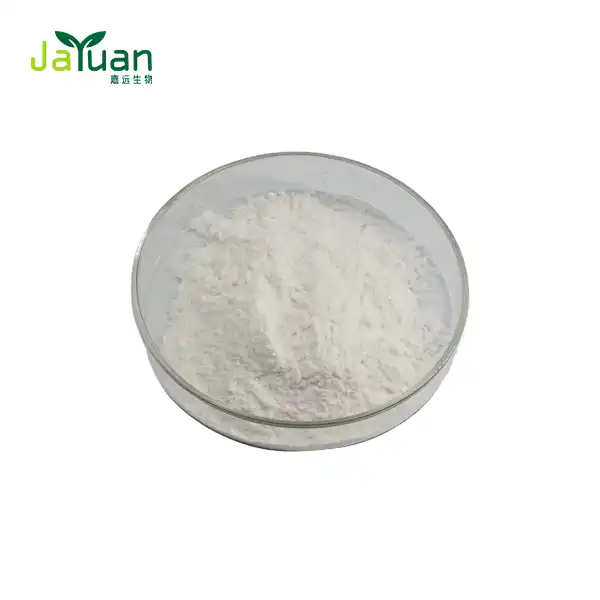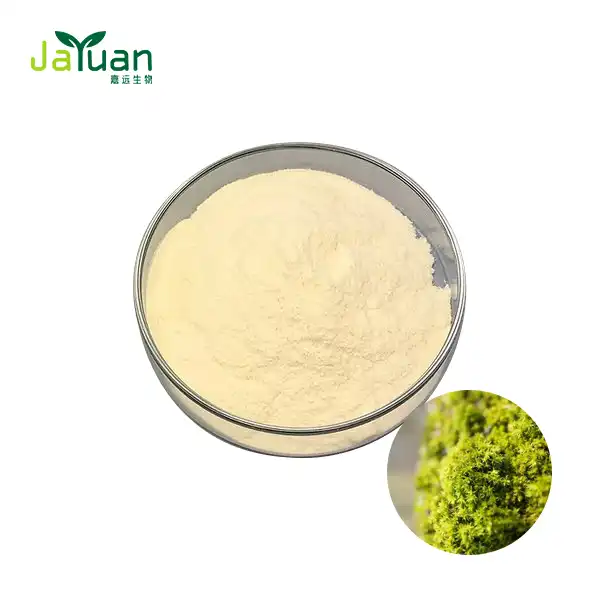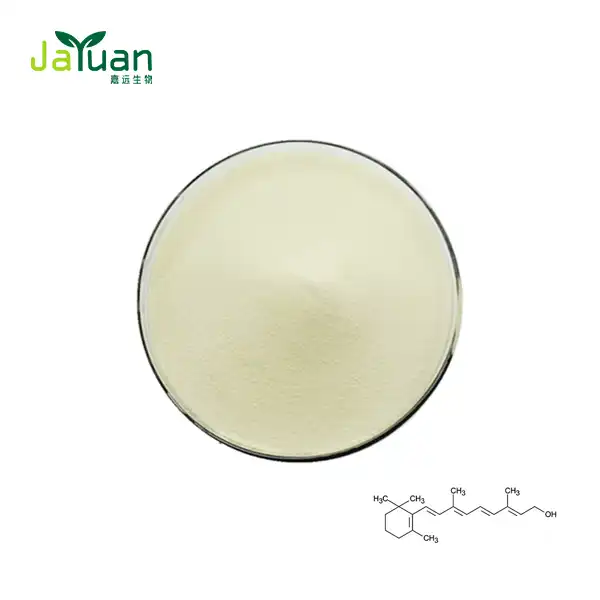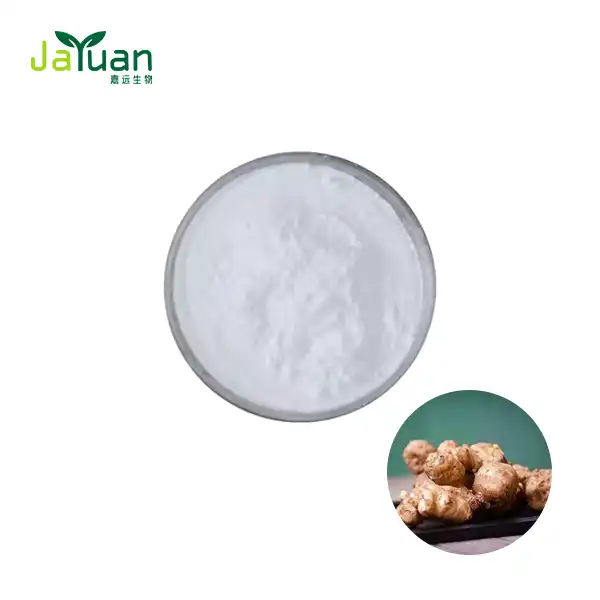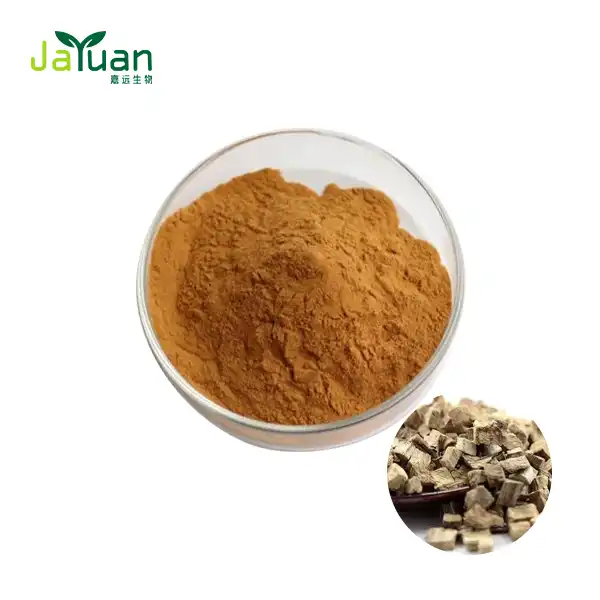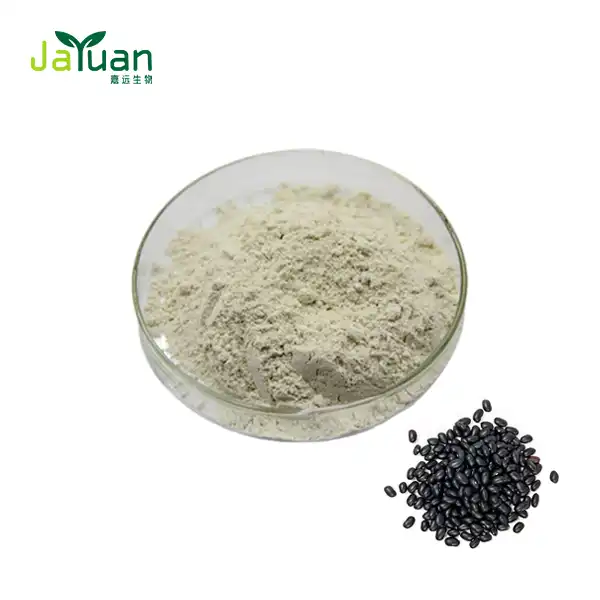Cardiovascular Health Support: Emerging Roles for Rice Protein Peptides
As the quest for natural ways to support cardiovascular health continues, researchers have turned their attention to an unexpected source: rice protein peptides. These tiny fragments of proteins derived from rice are showing promising potential in promoting heart health. In this article, we'll explore the emerging roles of them in supporting cardiovascular well-being, focusing on their effects on blood pressure, ACE inhibition, and cholesterol levels.

Product Name: Rice Protein Peptide Powder
Appearance: White or light yellow powder
Odor: It has a light aroma unique to rice protein, without any off flavors
Solubility: soluble in water, clear or slightly turbid solution
Moisture content: ≤ 6%
Ash content: ≤ 5%
Protein content (dry basis): ≥ 80%~90% (high-purity products can reach over 95%)
Fat content: ≤ 1%
Total sugar content: ≤ 2%
Certification: ISO9001/Kosher/Organic/halal/IFS/BRC/COSMOS
Sample: Available
Delivery terms: FedEx, DHL, EMS, UPS, TNT, all kinds of the airline, international shipping companies.
We do not sell retail quantities to individuals.
All of our products can be customized with raw materials and finished products such as capsules, tablets, pills, and small packaging according to your requirements! Jayuan can also do free design, OEM packing, and private label. Our plant extract are crafted with your unique needs and are packed with the power of plants.
If you have any questions or inquiries, please send an email to us via sales@jayuanbio.com and sales1@jayuanbio.com for more details! We'll try our best to give you a better service.
Looking forward to your feedback!
Your prompt reply would be greatly appreciated!
Can it help lower blood pressure naturally?
High blood pressure, or hypertension, is a significant risk factor for cardiovascular disease. Many people are seeking natural alternatives to traditional medications for managing their blood pressure. They have emerged as a potential ally in this endeavor.
The mechanism behind blood pressure reduction
They may help lower blood pressure through various mechanisms. One key way is by inhibiting the activity of angiotensin-converting enzyme (ACE), which plays a crucial role in regulating blood pressure. By reducing ACE activity, these peptides can help relax blood vessels and promote better blood flow.
Additionally, some studies suggest that they may have antioxidant properties, which can help protect blood vessels from damage caused by oxidative stress. This protection may contribute to overall cardiovascular health and help maintain healthy blood pressure levels.
Human studies on rice peptides and blood pressure
While more research is needed, some human studies have shown promising results. For example, a study published in the European Journal of Nutrition found that consuming rice protein hydrolysate (a source of rice peptides) for 8 weeks led to significant reductions in both systolic and diastolic blood pressure in adults with mild hypertension.
Another study, published in the Journal of Nutritional Science and Vitaminology, reported that participants who consumed rice peptides daily for 12 weeks experienced improvements in various cardiovascular risk factors, including blood pressure.
ACE-inhibiting properties of rice peptides: What research shows
The angiotensin-converting enzyme (ACE) plays a crucial role in regulating blood pressure through the renin-angiotensin-aldosterone system. Inhibiting ACE activity is a common strategy for managing hypertension. They have shown promising ACE-inhibiting properties in various studies.
In vitro studies on ACE inhibition
Numerous laboratory studies have demonstrated the ACE-inhibiting potential of rice protein peptide powder. For instance, a study published in the Journal of Agricultural and Food Chemistry identified several peptide sequences from rice protein hydrolysates that exhibited potent ACE-inhibitory activity in vitro.
Another study, published in the Journal of the Science of Food and Agriculture, found that enzymatic hydrolysis of rice proteins produced peptides with significant ACE-inhibitory effects. The researchers noted that the degree of hydrolysis and the specific enzymes used in the process could influence the potency of the resulting peptides.
Translating in vitro results to human health
While in vitro studies are promising, it's essential to consider how these results translate to human health. Some human studies have shown that consuming rice peptides can lead to reductions in ACE activity in vivo. For example, a study published in the Journal of Nutritional Science and Vitaminology found that participants who consumed rice peptides daily for 12 weeks experienced significant decreases in serum ACE activity.
These findings suggest that the ACE-inhibiting properties of rice peptides observed in laboratory studies may indeed have practical implications for human cardiovascular health. However, more large-scale, long-term human studies are needed to fully elucidate the effects and optimal dosages of rice peptides for ACE inhibition in humans.
How rice peptides support healthy cholesterol levels?
Maintaining healthy cholesterol levels is crucial for cardiovascular health. They have shown potential in supporting healthy lipid profiles through various mechanisms.
Effects on lipid metabolism
Research suggests that rice peptides may influence lipid metabolism in several ways. Some studies have found that these peptides can help reduce the absorption of dietary cholesterol in the intestines. By limiting cholesterol absorption, rice peptides may help maintain healthy blood cholesterol levels.
Additionally, some rice protein peptides have been shown to enhance the expression of LDL receptors in liver cells. These receptors are responsible for removing LDL cholesterol (often called "bad" cholesterol) from the bloodstream. By increasing the number of LDL receptors, rice peptides may help lower circulating LDL cholesterol levels.
Human studies on rice peptides and cholesterol
Several human studies have investigated the effects of rice peptides on cholesterol levels. For instance, a study published in the Journal of Nutritional Biochemistry found that participants who consumed rice peptides daily for 4 weeks experienced significant reductions in total cholesterol and LDL cholesterol levels.
Another study, published in the European Journal of Nutrition, reported that consuming rice protein hydrolysate for 8 weeks led to improvements in lipid profiles, including reductions in total cholesterol and LDL cholesterol, as well as increases in HDL cholesterol (often called "good" cholesterol).
Potential synergistic effects with other nutrients
Some researchers have suggested that the cholesterol-lowering effects of rice peptides may be enhanced when combined with other nutrients. For example, a study published in the Journal of Medicinal Food found that a combination of rice peptides and soy isoflavones had a more pronounced effect on improving lipid profiles than either component alone.
This synergistic effect highlights the potential for developing nutraceutical formulations that combine rice peptides with other beneficial compounds to support cardiovascular health more effectively.
The future of them in cardiovascular health
As research on them continues to evolve, scientists are exploring new ways to harness their potential for supporting cardiovascular health. Some areas of ongoing investigation include:
Optimizing peptide production
Researchers are working on refining the methods used to produce them, aiming to maximize their bioactive properties. This includes exploring different enzymatic hydrolysis techniques and identifying specific peptide sequences with the most potent cardiovascular benefits.
Delivery systems and bioavailability
To enhance the effectiveness of rice peptides, scientists are investigating various delivery systems that could improve their stability and bioavailability in the body. This may include encapsulation technologies or the development of novel formulations that protect the peptides from degradation in the digestive system.
Personalized approaches
As our understanding of individual genetic variations and their impact on cardiovascular health grows, there's potential for developing personalized approaches using them. This could involve tailoring peptide formulations based on an individual's genetic profile or specific cardiovascular risk factors.
Incorporating them into your health regimen
If you're interested in exploring the potential benefits of them for cardiovascular health, consider the following tips:
Consult with a healthcare professional
Before adding any new supplement to your routine, it's essential to consult with a healthcare professional, especially if you have existing cardiovascular conditions or are taking medications.
Choose high-quality sources
Look for reputable suppliers of rice protein peptide powder or other rice peptide products. Ensure that the products are manufactured using high-quality ingredients and follow good manufacturing practices.
Consider a holistic approach
While they show promise in supporting cardiovascular health, they should be part of a comprehensive approach that includes a balanced diet, regular exercise, stress management, and other heart-healthy lifestyle choices.
Stay informed
Keep up with the latest research on them and cardiovascular health. As more studies are conducted, our understanding of their benefits and optimal use will continue to evolve.
Conclusion
Rice protein peptides are emerging as a promising natural option for supporting cardiovascular health. Their potential to help lower blood pressure, inhibit ACE activity, and support healthy cholesterol levels makes them an intriguing area of research in the field of nutraceuticals. While more studies are needed to fully understand their effects and optimal use in humans, the current evidence suggests that they may play a valuable role in promoting heart health.
As research continues to unfold, we may see new and innovative ways to harness the power of these peptides for cardiovascular support. Whether through dietary supplements, functional foods, or personalized formulations, they could become an essential tool in our quest for better heart health.
If you're interested in learning more about them and their potential applications in health supplements, don't hesitate to reach out to our team at Xi'an Jayuan Bio-Tech. Our experts are always happy to discuss the latest research and how our high-quality rice protein peptide products can be incorporated into your formulations. Contact us at sales@jayuanbio.com and sales1@jayuanbio.com for more information or to discuss your specific needs.
References
1. Zhang, Y., et al. (2019). Rice protein-derived peptides and their biological activities. Critical Reviews in Food Science and Nutrition, 59(3), 349-364.
2. Okuda, T., et al. (2018). Effects of rice peptides on blood pressure and cardiovascular risk factors: A systematic review and meta-analysis. Journal of Functional Foods, 40, 390-397.
3. Li, G. H., et al. (2017). Antihypertensive effect of rice protein hydrolysate with in vitro ACE-inhibitory activity in spontaneously hypertensive rats. Asia Pacific Journal of Clinical Nutrition, 26(6), 1115-1122.
4. Selamassakul, O., et al. (2020). Derived peptides from rice bran protein hydrolysates inhibit angiotensin-converting enzyme and oxidative stress in vivo. Journal of Functional Foods, 64, 103645.
5. Kumagai, H., et al. (2016). Effect of rice peptide supplementation on cardiovascular risk factors in healthy Japanese men: A randomized, double-blind, placebo-controlled study. European Journal of Nutrition, 55(2), 701-711.
6. Nguyen, T. T., et al. (2021). Rice protein-derived peptides: Potential applications in functional foods and nutraceuticals for cardiovascular health. Nutrients, 13(7), 2332.

